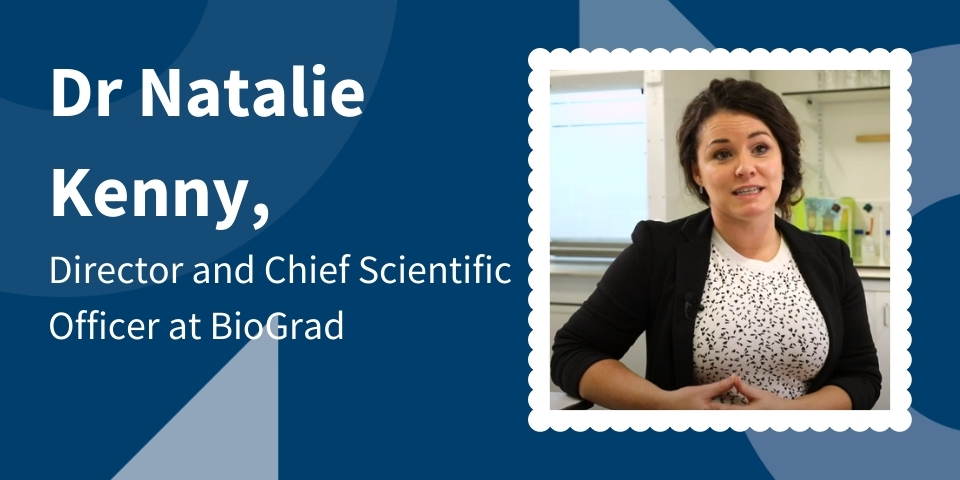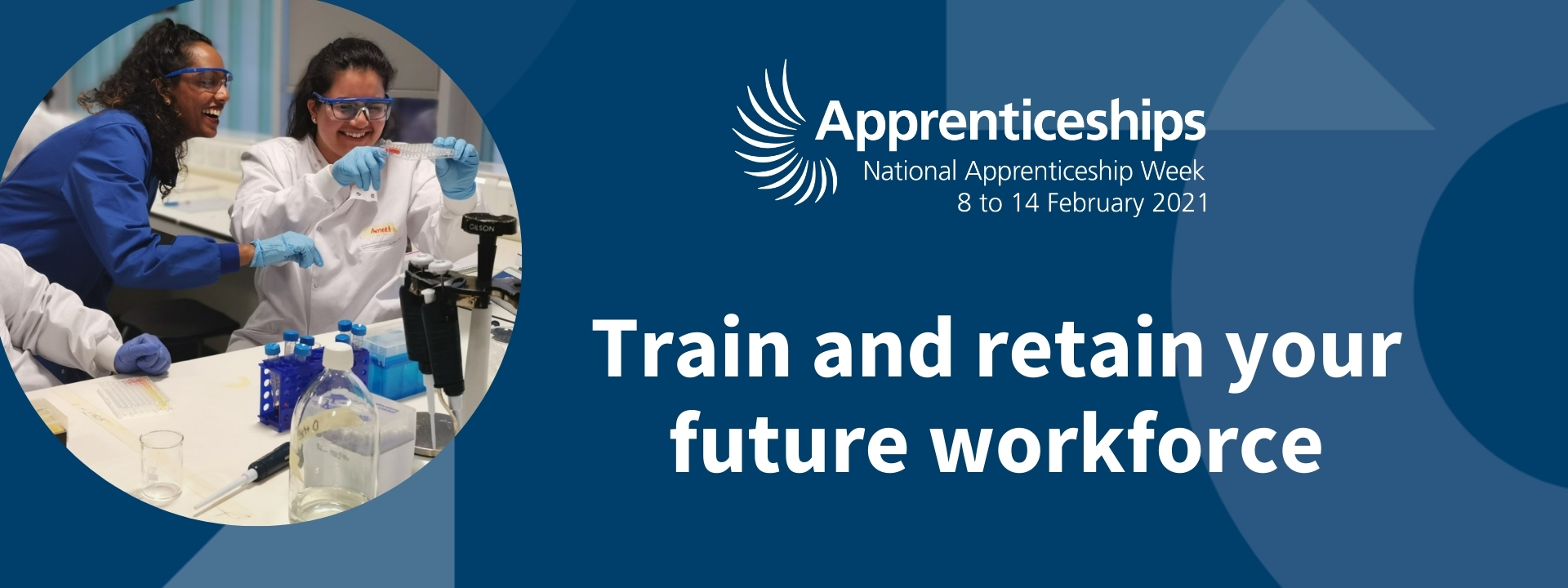Monday 8th to Sunday 14th February 2021.
This week we are celebrating the successes of our partner employers, apprentices and the fantastic careers that they embark upon after qualifying.
Why hire an apprentice?
Apprenticeships are a great way for people of all ages to gain valuable hands-on experience, developing skills within a work environment. You can create a highly skilled workforce and/or develop your new and existing employees to help grow your business.
Whatever your goals, Wirral Met College can help your business to succeed.
If you hire a new apprentice before the 31st of March 2021, you could receive up to £2,000 as an incentive payment. Learn more.
This email address is being protected from spambots. You need JavaScript enabled to view it.
Why choose Wirral Met College?
Over the last 3 years we have been busy at work with our partner employers, creating apprenticeship opportunities in the local community. We work closely with you as the employer to create a comprehensive work-based learning training programme with the option for college-based learning as appropriate, that will benefit your business, as well as the apprentice – whether they are an existing employee, or a new recruit.
Don't just take our word for it - hear from our partner employers and apprentices!

World-renowned clinical and laboratory training provider BioGrad works with Wirral Met College to provide apprenticeships.
Dr Natalie Kenny, BioGrad's Director and Chief Scientific Officer said:
“Working with apprentices is allowing us to grow very rapidly. Apprentices are really enthusiastic and excited about coming in to work. They bring this fresh excitement and enthusiasm for science in to the labs.”

India completed her level 3 apprenticeship in 2016 and has since worked for large public sector organisations, an industry leading private sector SME and currently works as a Marketing Coordinator in Wirral Met College's busy marketing team.
"Apprenticeships are a brilliant stepping stone in to a wide range of sectors. The experience I gained whilst an apprentice has allowed me to secure permanent roles in both public and private sectors. After gaining experience for 6 years, I'm now completing a degree level apprenticeship (level 6) with hopes that it will help me to progress further in my career."

As a leading provider of independent ambulance services across the North West, Spark Medical's recruitment strategy is built around giving back to the local community through apprenticeship opportunities.
Matthew Kelly, Spark Medical's Managing Director said:
“The process to recruit an apprentice was really easy. We developed a plan with our dedicated point of contact at the College and they facilitated the recruitment process.”
Employers we work with
Offering a range of apprenticeship training programmes across the Liverpool City Region and beyond, from level 2 to Degree level, our apprentices have access to outstanding support from highly skilled Trainer Assessors with a wide range of industry expertise.
Free Personal Service
You will have a dedicated point of contact from our experienced team, who will act as a Training Manager for your business, providing free advice and guidance on funding and recruitment of apprentices and trainees.
Training Analysis
You will receive a free of charge gap analysis of your current employees’ skills and those needed to achieve your business goals – invaluable for succession planning.
Expertise
Our tutors and assessors all have a wide range of expertise, helping you to enhance employee satisfaction and retention, resulting in a more motivated and productive team through specialist training.
This email address is being protected from spambots. You need JavaScript enabled to view it.
Frequently Asked Questions
- What is an apprenticeship?
Apprenticeships are industry specific work-based learning programmes designed to develop the apprentices’ skills, from junior to management levels. Combining both theory and practical assessments in the workplace, alongside assignments and exams at College, apprenticeships include skills, knowledge and behaviours with qualifications required for specific job roles including English and maths.
- What do the different apprenticeship levels mean?
There are various levels of apprenticeships available through Wirral Met College, with different levels equating to qualifications as described below.
Apprenticeship Level
Qualification Equivalent
2
Five GCSE passes at grades 9 to 4 (A* to C)
3
Two A-Level passes at grades 9 to 4 (A* to C)
4 & 5
Foundation Degrees, Higher National Certificates and Diplomas
6 Bachelor's Degree 7 Master's Degree - What does it cost and what funding is available?
The government has announced new incentives for the recruitment of apprentices:
– A payment of £2,000 for each new apprentice hired under the age of 25*
– A payment of £1,500 for each new apprentice hired over the age of 25**for employers in England for each new apprentice hired between the 1st of August 2020 and the 31st of March 2021.
Apprenticeship costs differ and depend on the level of the qualification.
If your businesses’ pay bill is less than £3 million per year, you will pay 5% of the cost to the College, as your chosen training provider, towards the costs of training and assessing your apprentice. The government will then pay the College 95% up to the funding band maximum.
If your business employs fewer than 50 people, you will not have to pay the 5% contribution for an apprentice aged between 16 and 18, or between 19 and 24 if they have previously been in care, or have an EHCP (Education, Health and Care Pplan) provided by the local authority. The government will pay the College 100% of the training cost.
If your businessesbusiness’ pay bill exceeds £3 million per year, you will be required to pay an apprenticeship levy of 0.5% of your annual pay bill. The amount you pay is calculated by the HMRC using data that they hold about the home addresses of your employees. The levy is collected by the HMRC directly through the businesses’ PAYE and is payable alongside income tax and National Iinsurance – there is an annual allowance of £15,000.00 which is deducted on a monthly basis across 12 months.
What is a ‘pay bill’?
‘Pay bill’ is defined by the total employee earnings that are subject to class 1 secondary National Insurance contributions.An allowance of £15,000.00 means that only those employers with an annual pay bill of more than £3million have to pay and report the levy, as this allowance eliminates a levy liability up to a pay bill of £3million.
A pay bill of less than £3million may attract a levy liability where an employer operates multiple payrolls, or has more than one HMRC reference, or is a connected company or charity, as only one allowance is available.
How can I access levy funds as an employer and how can it be spent?
Once you have declared the levy to the HMRC, your business can access funding through your digital account with the Apprenticeship Service (URL). Valid for 24 months, you can spend the levy on apprenticeship training only.How does the transfer of a levy work?
Businesses who pay the levy and have unused funds can transfer up to 25% of their annual funds to other businesses. There is no limit to the number of businesses that the funds can be transferred to, however they must only be used for apprenticeship training. - What are the benefits of employing an apprentice?
Aside from creating a highly skilled workforce through comprehensive work-based learning and boosting productivity, there are many benefits to apprenticeships.
Existing employees – you can provide progression opportunities for existing employees through a cost-effective training solution that supports succession plans whilst providing a great return on investment.
New recruits – you can create a highly skilled workforce, moulding new recruits with the attitudes and behaviours that represent your business’ core values.
Working with Wirral Met College – by working with us to deliver your apprenticeship programme(s), you will receive a personal service from our experienced team, who will act as a Training Manager for your business, providing advice and guidance on funding and recruitment.
- Is there any legislation behind hiring an apprentice?
Apprentices are employed by your business and must therefore be issued with a contract of employment in line with The Enterprise Act 2016 – with no mention of the College within the terms and conditions of this contract. You must provide apprentices with a full induction, including health and safety as well as any clothing or PPE required for their role. Apprentices must receive the minimum salary in line with the Apprentice Wage for the first year of the apprenticeship and the National Minimum Wage thereafter.
- What is the eligibility for hiring an apprentice?
Employers – any organisation can hire an apprentice, no matter the size or the sector.
Apprentices – apprentices must be aged 16+ and can be either new recruits or existing employees. Although apprentices can already have a degree level qualification, it must not be related to the apprenticeship Standard.
- What are the working hours of an apprentice and how frequently are they required to attend College?
Apprentices should work for at least 30 hours per week, inclusive of 20% off-the-job training*. If the apprentice works fewer than 30 hours per week, the duration of the apprenticeship will be extended (pro-rata). Time spent at the College for training must be included within working hours and paid at the normal rate. The frequency entirely depends upon the apprenticeship standard.
*20% off-the-job training is a crucial element to an apprenticeship and can include College day release (excluding English and maths) or training delivered at the apprentice’s place of work.






